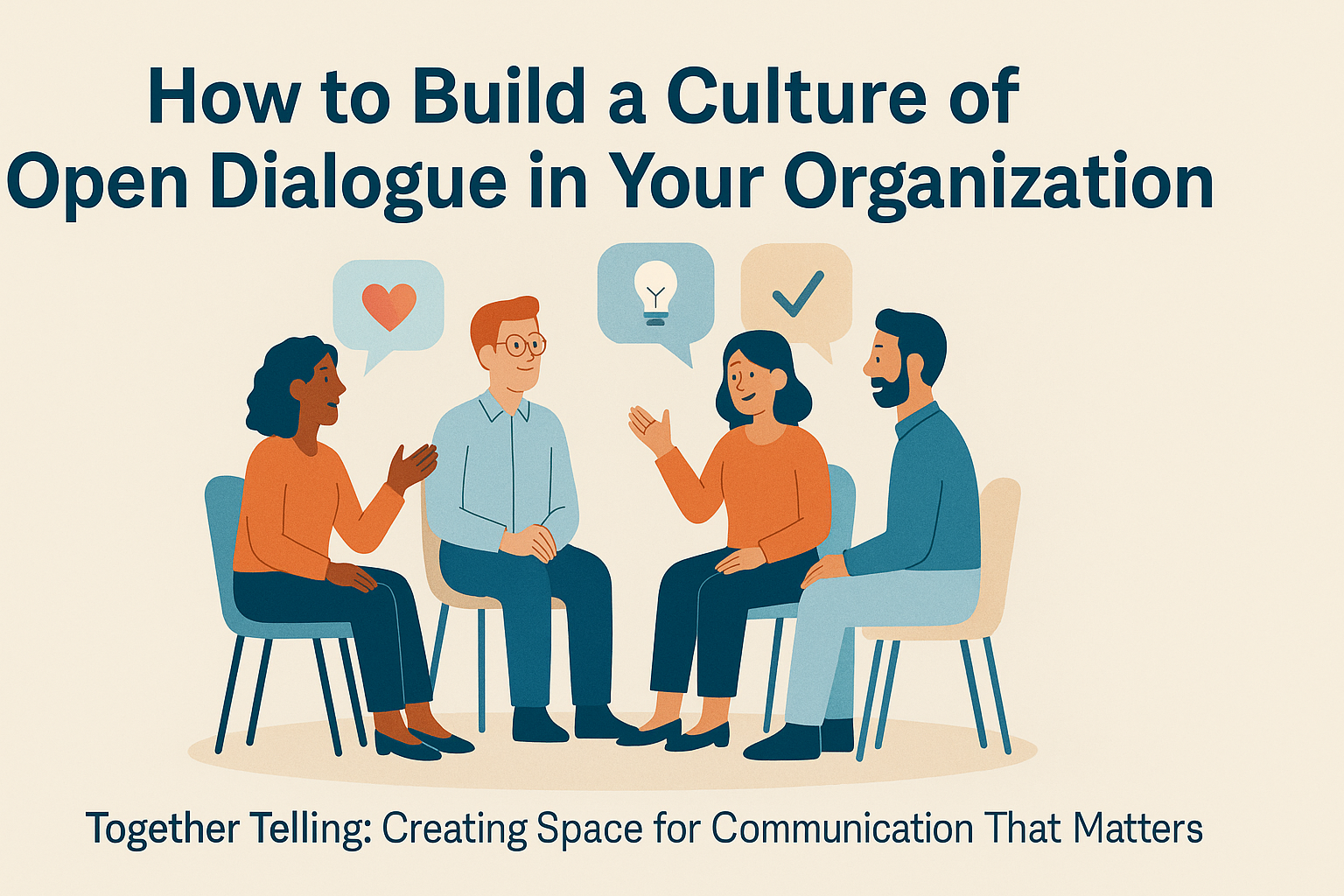
Introduction: Because No One Likes Talking to a Brick Wall
Let’s be real—the phrase “my door is always open” sounds great… until you realize no one feels comfortable walking through it. In most workplaces, people nod through meetings, silently disagree, and then vent in the breakroom or, worse, in the group chat labeled “Team Therapy.”
An open dialogue culture is not about adding another Zoom call titled “Feedback Hour.” It’s about creating a space where ideas flow, feedback is welcomed (and not feared), and innovation thrives. Because when people talk, incredible things happen.
So, how do you build that kind of culture? Here’s the playbook, with a side of corporate humor, of course.
Why Open Dialogue Matters (Hint: It’s Not Just for HR)

1. Encourages Honest Communication
The Problem:
Teams avoid giving honest feedback because they fear repercussions.
Passive-aggressive emails become the norm (“Per my last email…”).
Problems fester because everyone is too polite to speak up.
Why It Matters:
Honest communication saves time, reduces errors, and strengthens trust.
People stop reading between the lines and start hearing the actual message.
Teams tackle issues head-on rather than sweeping them under the carpet, labeled “we’ll deal with it later.”
Corporate Humor Moment: “Radical candor” is great until it turns into “accidentally offensive.” Finding the sweet spot? That’s the art.
2. Enhances Team Engagement
The Problem:
When voices go unheard, people check out.
Meetings become spectator sports rather than collaborative sessions.
Innovation dies because no one feels safe pitching ideas.
Why It Matters:
Open dialogue keeps team members engaged, heard, and valued.
When people speak up, they’re invested in the outcome.
Teams brainstorm better, solve problems faster, and create cooler stuff.
Corporate Humor Moment: Ever been in a brainstorm where only the boss talks? Yeah, that’s not a brainstorm—it’s just weather.

3. Strengthens Workplace Relationships
The Problem:
Misunderstandings create unnecessary tension.
Lack of communication breeds resentment.
Teams operate in silos, like strangers working in the same building.
Why It Matters:
Open dialogue fosters empathy and understanding.
Colleagues stop being “that person from marketing” and start being people.
Conflict gets resolved quickly, not stored for quarterly reviews.
Corporate Humor Moment: “We should all be on the same page” sounds nice, but if you’re not even in the same book, we’ve got a problem.
How Together Telling Encourages Open Dialogue (Without Making It Awkward)
1. Providing Workshops on Active Listening and Transparency
We don’t just talk to teams, we train them to listen (yes, even when Greg is rambling).
Our Workshops Cover:
How to practice active listening (put the phone down, Karen).
Techniques to give feedback that’s clear, kind, and actionable.
Creating a judgment-free zone where people aren’t afraid to speak.
Outcome: Fewer meetings where everyone leaves wondering, “Wait, what just happened?”

2. Implementing Structures for Constructive Team Discussions
Open dialogue shouldn’t depend on who’s brave enough to speak first. We build frameworks that make it part of the process.
Our Approach:
Establishing regular feedback sessions with set agendas.
Teaching teams to use “I statements” (less “you’re wrong” and more “I see it differently”).
Encouraging cross-team collaboration to break down silos.
Outcome: Feedback becomes a habit, not a confrontation.
Corporate Humor Moment: Imagine a world where feedback doesn’t trigger anxiety sweats. We help you build that.
Final Thoughts: Communication Shouldn’t Be a One-Way Street
Building a culture of open dialogue is the difference between a team that survives and a team that thrives. It’s about creating an environment where communication is honest, respectful, and productive.
At Together Telling, we don’t just preach open dialogue, we build it into the DNA of your team. Because when people talk with each other (not just at each other), magic happens.
Backlink Source:

